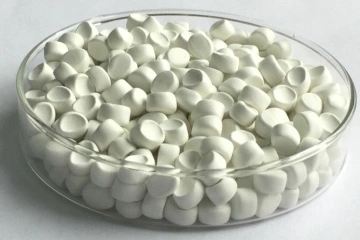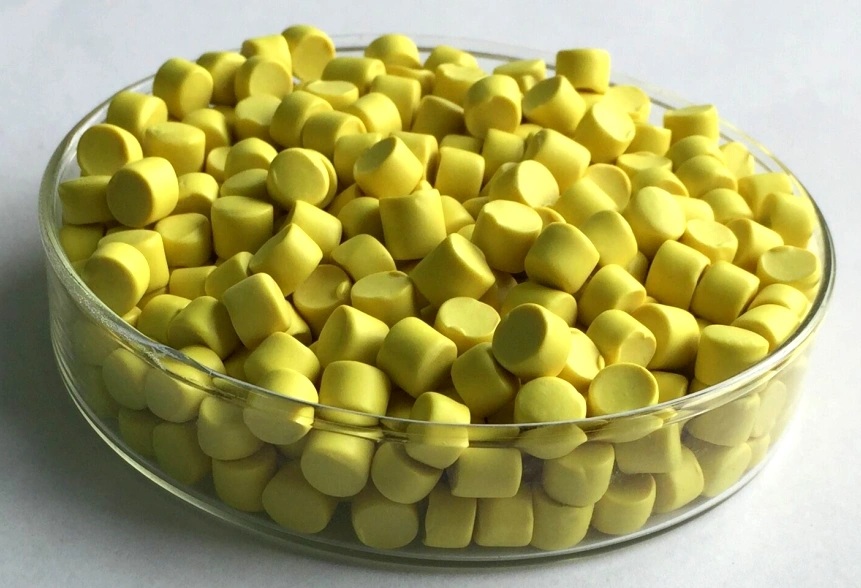Rubber vulcanization is a critical process in the rubber industry, transforming raw rubber into durable, elastic, and heat-resistant materials. At the heart of this process lies the activator, a key component that ensures efficient and effective vulcanization.
In this article, we’ll explore what activators are, their importance, the different types available, how they enhance rubber performance, safety considerations, and where to source high-quality activators like those from Beihua.

1. What is Activator and Why is it Important?
An activator in rubber vulcanization is a chemical compound that accelerates the reaction between sulfur (or other vulcanizing agents) and rubber polymers. It plays a crucial role in initiating and speeding up the cross-linking process, which gives rubber its strength, elasticity, and durability.
Why are Activators Important?
-
Faster Vulcanization: Activators significantly reduce the time required for vulcanization, improving production efficiency.
-
Enhanced Rubber Properties: They ensure uniform cross-linking, leading to better tensile strength, heat resistance, and wear resistance.
-
Cost-Effective Production: By optimizing the vulcanization process, activators help reduce energy consumption and material waste.
Without activators, the vulcanization process would be slower, less efficient, and could result in inferior rubber products.
2. Types of Rubber Vulcanization Activators
Activators are typically classified into two main categories based on their chemical composition and function:
Zinc Oxide (ZnO)
-
Most Common Activator: Zinc oxide is widely used due to its effectiveness and compatibility with various rubber compounds.
-
Role: It works synergistically with stearic acid to accelerate the vulcanization process.
-
Applications: Used in tires, conveyor belts, seals, and other industrial rubber products.
Organic Activators
-
Examples: Stearic acid, fatty acids, and amines.
-
Role: These activators improve the dispersion of zinc oxide in the rubber matrix, enhancing its efficiency.
-
Applications: Often used in combination with zinc oxide for specialized rubber products.
Specialty Activators
-
Examples: Calcium oxide, magnesium oxide, and lead oxide (less common due to environmental concerns).
-
Role: Used for specific applications where unique properties like heat resistance or electrical insulation are required.
Choosing the right type of activator depends on the rubber formulation and the desired properties of the final product.
3. How Activators Improve Rubber Performance?
Activators play a pivotal role in enhancing the performance of vulcanized rubber. Here’s how they contribute:
Improved Tensile Strength
Activators ensure uniform cross-linking of rubber molecules, resulting in higher tensile strength and resistance to deformation.
Enhanced Elasticity
By optimizing the vulcanization process, activators help rubber retain its elasticity even under stress or strain.
Better Heat Resistance
Activators enable rubber to withstand high temperatures without losing its structural integrity, making it ideal for automotive and industrial applications.
Increased Durability
The cross-linking facilitated by activators makes rubber more resistant to wear, tear, and aging, extending the lifespan of rubber products.
Consistent Quality
Activators ensure a uniform vulcanization process, reducing defects and improving the overall quality of rubber products.

4. Safety Considerations When Using Activators
While activators are essential for rubber vulcanization, they must be handled with care to ensure safety and compliance with regulations:
Proper Storage
-
Store activators in a cool, dry place away from direct sunlight and moisture.
-
Keep them in tightly sealed containers to prevent contamination.
Handling Precautions
-
Wear protective gear, including gloves, goggles, and masks, to avoid skin contact or inhalation.
-
Ensure proper ventilation in the workspace to minimize exposure to fumes.
Environmental Concerns
-
Dispose of activators responsibly, following local environmental regulations.
-
Opt for eco-friendly activators like zinc oxide, which have a lower environmental impact compared to heavy metal-based activators.
Compliance with Standards
-
Ensure that the activators used comply with industry standards such as REACH, RoHS, and OSHA guidelines.
5. Where to Buy High-Quality Rubber Vulcanization Activators: Choose Beihua
When it comes to sourcing high-quality rubber vulcanization activators, we Beihua stands out as a trusted supplier. Here’s why:
Superior Product Quality
Beihua offers premium-grade activators, including zinc oxide and organic activators, that meet international quality standards.
Wide Range of Options
Whether you need activators for tires, industrial rubber products, or specialized applications, Beihua provides a diverse selection to meet your needs.
Competitive Pricing
Beihua offers cost-effective solutions without compromising on quality, helping you optimize production costs.
Reliable Supply Chain
With a robust distribution network, Beihua ensures timely delivery of activators to your facility, minimizing downtime.
Technical Support
Beihua’s team of experts provides technical assistance to help you choose the right activator and optimize your vulcanization process.
Activators are indispensable in rubber vulcanization, playing a vital role in enhancing the performance, durability, and quality of rubber products. Understanding the types of activators, their benefits, and safety considerations is crucial for optimizing the vulcanization process. For high-quality activators that deliver consistent results, Beihua is the go-to supplier. Whether you’re in the automotive, industrial, or consumer goods sector, Beihua’s activators can help you achieve superior rubber performance.
By choosing the right activators and partnering with a reliable supplier like Beihua, you can ensure efficient production, cost savings, and high-quality rubber products that meet industry standards.
 vaskokudrickrk136@gmail.com
vaskokudrickrk136@gmail.com Jiaxing Beihua Polymer Auxiliaries Co., Ltd. / Shanghai Crystal Wells Chemical New Materials Co.
Jiaxing Beihua Polymer Auxiliaries Co., Ltd. / Shanghai Crystal Wells Chemical New Materials Co.
































